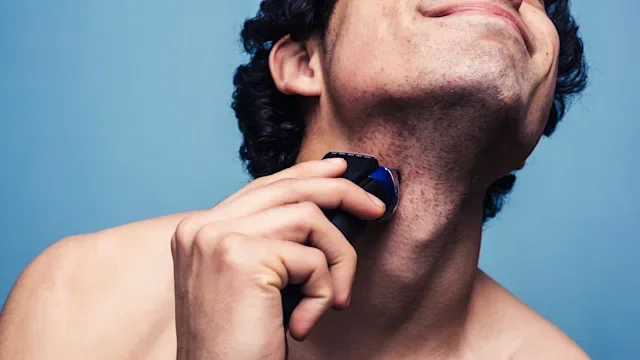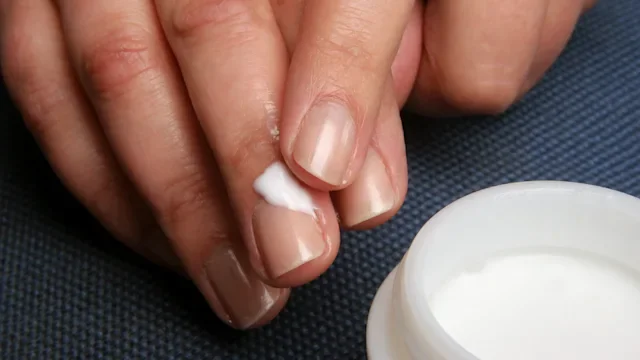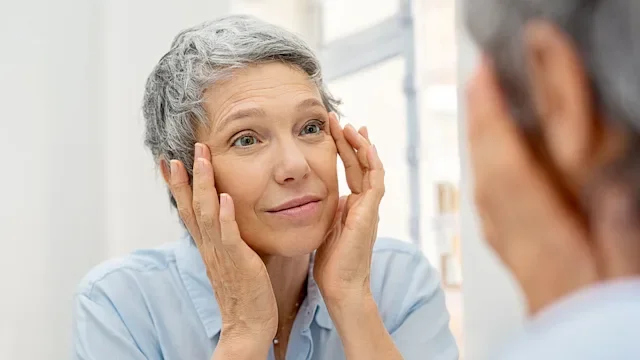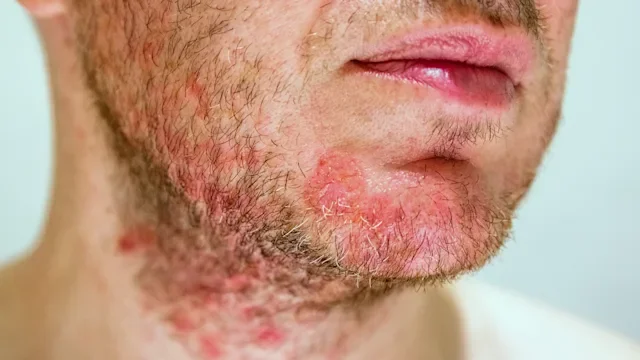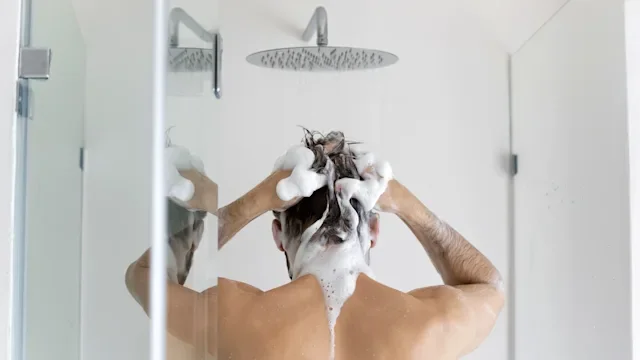Key takeaways:
Dehydration, sun exposure, and skin allergens or irritants can remove moisture and cause dry, chapped lips.
Remedies for chapped lips include staying hydrated, using a nonirritating lip balm with SPF protection and avoiding licking or picking at your lips.
Dry lips that don’t respond to home remedies may be a sign of a vitamin deficiency or a more serious skin condition.
In the fall and winter months, chapped lips are all too common. You can start to feel painful cracks and annoying peeling. Not only can it hurt to smile, but eating and drinking can be painful.
Luckily, there are many remedies to help keep your lips soft and smooth. Let’s look at what causes lip irritation and what you can do to heal dry, chapped lips.
What causes chapped lips?
Chapped lips are primarily a result of moisture loss. But there are several reasons this can happen. Some common causes of cracked and chapped lips include:
Dehydration: If you lose more water than you take in, your skin and lips can start to become dry.
Sun exposure: UV rays can damage the skin and cause peeling, cracked lips.
Licking your lips: Saliva weakens the protective layer on your lips. And it evaporates quickly, leading to a cycle of licking your lips to heal the dryness you just created.
Allergens: Some ingredients in lip balms, makeup, and other beauty products can irritate and inflame the lips.
Certain medical conditions: Persistently dry lips can be a sign of a more widespread skin condition like eczema or psoriasis.
Search and compare options
Now that we know some common causes for chapped lips, let’s look at the best remedies for chapped lips.
1. Stay hydrated
Lips can become chapped because of dehydration, so make sure you’re drinking enough water throughout the day. Most adults need between 2 L and 4 L of water per day. This sounds like a lot, but that includes water in the foods you eat. You may need more or less water depending on your activity level and the environment.
2. Use lip balm
Using a moisturizing lip balm can help give dry lips the moisture they need. Pick a lip balm that has two key ingredients: a humectant and an occlusive. A humectant will help the lips hold onto water. Common examples are glycerin and hyaluronic acid. An occlusive, like petroleum jelly or mineral oil, prevents water from evaporating.
Avoid lip balms that contain menthol, camphor, fragrances, or flavors because these can be irritating and cause more dryness.
3. Apply sun protection
There are plenty of benefits to using sunscreen every day — including protecting your lips! Lips are prone to dryness and peeling if exposed to the sun for prolonged periods of time. Choose a lip balm with sun protection factor (SPF) to help prevent lips from burning. Look for lip balms with zinc oxide and titanium oxide in the ingredient list. Apply before going outside and reapply every 2 hours.
4. Avoid picking, licking, and biting your lips
Biting your lips can make chapped lips even worse. While biting or licking lips may offer temporary relief for dry lips, it ultimately creates a vicious cycle that leads to increased dryness and peeling. If you can resist the urge, you’ll likely notice some improvement in just a few days.
Dealing with dry lips? Here are some reasons why your lips are so dry.
Angular cheilitis can be tough to treat. Here’s what to do if the corner of your lips are dry and cracked.
Looking for savings tips? Here’s when you can use your FSA to purchase lip balm.
5. Use a humidifier
Humidifiers add moisture into the air and help against dryness. This can be an easy and effective way to manage dry skin in the winter. Plugging in a humidifier in your bedroom can help stop your lips and mouth from drying out overnight.
Frequently asked questions
You should see improvement within a couple of weeks of treatment. Talk with a healthcare professional about chapped lips that don’t seem to respond to treatment.
Yes. Certain vitamin and nutrient deficiencies can cause dry lips. The most common nutrient deficiencies that can cause dry, cracked lips include iron, zinc, and B vitamins.
Dehydration, lip licking, extreme weather, and not using the appropriate type of lip balm can worsen chapped lips. It’s important to recognize the right ingredients when choosing a lip balm to help trap in the moisture and keep the lips hydrated.
You should see improvement within a couple of weeks of treatment. Talk with a healthcare professional about chapped lips that don’t seem to respond to treatment.
Yes. Certain vitamin and nutrient deficiencies can cause dry lips. The most common nutrient deficiencies that can cause dry, cracked lips include iron, zinc, and B vitamins.
Dehydration, lip licking, extreme weather, and not using the appropriate type of lip balm can worsen chapped lips. It’s important to recognize the right ingredients when choosing a lip balm to help trap in the moisture and keep the lips hydrated.
The bottom line
Remedies for dry, chapped lips aim to restore missing moisture. You can heal chapped lips by staying hydrated, using a humidifier, and applying hydrating lip balms without added allergens. With dedicated treatment you can turn your dry, chapped lips into a smooth and well-moisturized smile.

Why trust our experts?



References
American Academy of Dermatology Association. (n.d.). 7 dermatologists’ tips for healing dry, chapped lips.
American Academy of Dermatology Association. (2024). Sunscreen FAQs.
Ayesh, M. H. (2018). Angular cheilitis induced by iron deficiency anemia. Cleveland Clinic Journal of Medicine.
Bhutta, B. S., et al. (2023). Cheilitis. StatPearls.
Brown, M. J., et al. (2023). Vitamin B6 deficiency. StatPearls.
Cleveland Clinic. (2023). 5 spots you’re probably forgetting to put sunscreen.
Federico, J. R., et al. (2023). Angular cheilitis. StatPearls.
Maxfield, L., et al. (2023). Zinc deficiency. StatPearls.
National Academies. (2004). Report sets dietary intake levels for water, salt, and potassium to maintain health and reduce chronic disease risk.



